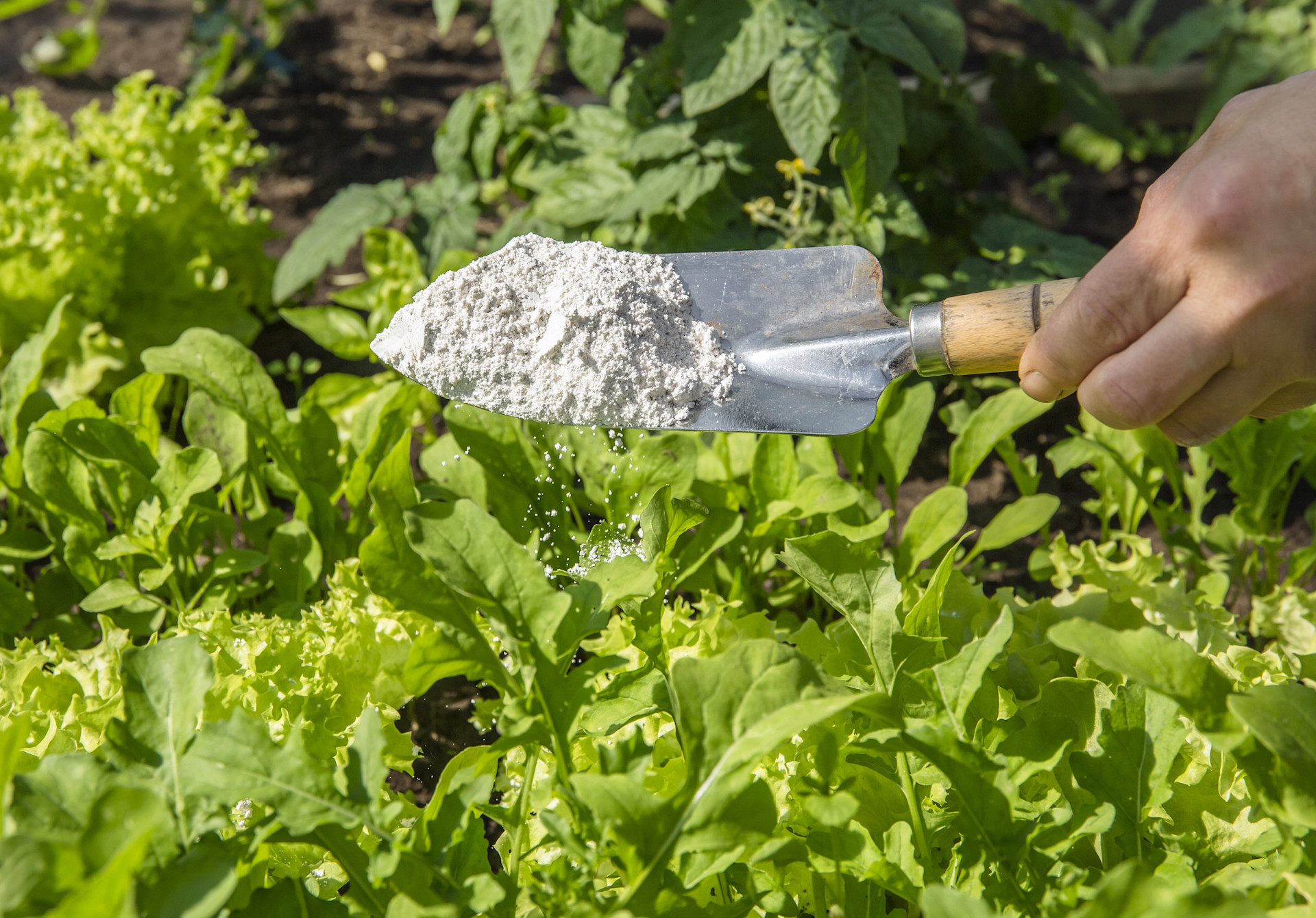How to Use Diatomaceous Earth in Your Garden or Lawn
Written by MasterClass
Last updated: Sep 10, 2021 • 3 min read
Diatomaceous earth is naturally occurring silica found in microscopic fossils. Potential benefits of diatomaceous earth use around your lawn or garden include pest control.
Learn From the Best
What Is Diatomaceous Earth?
Diatomaceous earth (DE) is tiny, powdered fossils. The white powder comes from the ground fossilized remains of the microscopic single-celled organisms called diatoms.
People use DE powder around their homes and gardens for pest management, flea control, and other household uses. There are multiple types of DE available, including food-grade DE and pool-grade. Always purchase food-grade diatomaceous earth for use around your garden. Pool-grade DE is non-food-grade and is for use with pool filters.
3 Ways to Use Diatomaceous Earth as a Natural Insecticide
You can use diatomaceous earth as a natural insecticide. The fossilized skeletons are made of silica, a naturally occurring mineral that has microscopic sharp edges. Those edges lodge themselves in soft-bodied insects and insects with exoskeletons and kill them. Here are three ways people use DE inside and outside their homes:
- 1. As in-home bug control: DE can be helpful in controlling and killing household infestations of cockroaches, bed bugs, and other invasive insects.
- 2. To combat garden pests: You can use diatomaceous earth around infected plants where you have noticed infestations. Soft-bodied insects like slugs and snails don’t like to cross the barrier. DE will also kill insects like earwigs, silverfish, centipedes, and other crawling insects that can harm your plants and flowers. DE can also control smaller pests, like aphids. However, it’s advisable not to use DE in large amounts in the garden, as it can also kill beneficial insects, such as ladybugs.
- 3. To control fleas and ticks: If you have a dog or cat, you can sprinkle DE powder on areas like carpets or pet beds to try to rid the items of fleas or ticks. Be sure to vacuum up the powder before letting your pet use the affected items.
How to Apply Diatomaceous Earth
The application of diatomaceous earth differs depending on its use. Consider these suggested application methods when using diatomaceous earth around your home or garden:
- In the house: Use an applicator or duster to apply diatomaceous earth when using the powder as pest control in the house. To control roaches, lightly dust areas of infestation including cabinets and food storage areas, around baseboards, and doors and windows. Always use food-grade DE in the house, but do not apply it to food or let the DE come into contact with any food. Reapply every few weeks or until the pest problem resolves.
- In your garden: If you have aphids, mites, slugs, or other garden pests, sprinkle a fine layer on the ground in the area immediately around the affected plants. For small mites, you can also dust plant leaves. Be sure to use it in dry weather, as wet DE does not kill insects.
- Outdoor insect control: To stop pests before they enter your home, use a specialty DE sprayer and apply a fine layer of the powder around the exterior of the house or other crevices where insects like roaches, crickets, or other insects can enter.
Is Diatomaceous Earth Safe?
DE is a natural product, and there are skin care and makeup products, as well as brands of toothpaste, that include cosmetic-grade DE for purported detoxification reasons. That said, research is ongoing concerning the safety involved in ingesting DE or using DE on humans. Using DE as pest control is a safer method than using insecticides, but you should always take precautions when using it around people and pets. When controlling pests around your home or garden with diatomaceous earth, remember to:
- Wear a mask. The fine powder can irritate your eyes and nasal passages. Wear a dust mask when applying diatomaceous earth.
- Avoid skin contact. DE is absorbent and could dry your skin with prolonged contact.
- Avoid pet contact. Just as DE can cause dry skin in humans, it can cause dry or irritated skin for your pets, too.
Learn More
Grow your own garden with Ron Finley, the self-described "Gangster Gardener." Get the MasterClass Annual Membership and learn how to cultivate fresh herbs and vegetables, keep your house plants alive, and use compost to make your community—and the world—a better place.
